Cugir Hosts the UNESCO Learning Cities Conference in Romania, Highlighting Lifelong Learning and Sustainable Urban Development
Article published on 20-11-2025On 17–18 November, the town of Cugir in Romania hosted the UNESCO Learning Cities Conference in Romania, becoming a focal point for promoting lifelong learning and sustainable development at both local and regional levels.
Organized by the Municipality of Cugir in partnership with the Romanian National Commission for UNESCO, the event brought together local authorities, experts in education, research, urban development and public policy, as well as representatives from cities affiliated with UNESCO’s Global Network of Learning Cities (GNLC).
The conference featured the participation of the Romanian Learning Cities within the GNLC—Cugir and Reșița—alongside the UNESCO Creative Cities of Iași and Bistrița. Their presence not only demonstrated the diversity and vitality of Romanian engagement in UNESCO programmes but also helped strengthen dialogue between the educational and cultural sectors, a key dimension of contemporary urban development.
A major contribution to the event came from Raúl Valdés Cotera, Senior Programme Coordinator at the UNESCO Institute for Lifelong Learning (UIL), who presented the current strategic direction of the Global Network of Learning Cities. In his address, he emphasized the importance of coherent, integrated policies that place learners and local communities at the heart of urban transformation.
During the event, Geanina Edulescu, adviser within the Romanian Ministry of Education, outlined the national and European legislative frameworks available to support lifelong learning for Romanian citizens and explained how these instruments align with UNESCO’s agenda and the role of Learning Cities.
International perspectives were also represented through the participation of Dr. Collin Pillay from Durban, South Africa, and Willie McLiffe from Cork, Ireland—two cities widely recognized for their lifelong learning initiatives. Their reflections provided valuable insights into innovation strategies and community-based approaches that have shaped the development of their respective cities.
Over the course of the two-day programme, participants shared good practices in sustainable urban development and explored ways to foster a culture of lifelong learning at the municipal level. The first day featured thematic sessions focused on cultural and educational projects that have transformed local communities, UNESCO’s role in supporting sustainable urban development, and collaborative initiatives involving regional and cross-sectoral partners. Discussions also addressed heritage preservation and environmental protection as essential components of sustainable learning cities.
The second day offered a closer look at a wide spectrum of projects developed in Romania to bring learning closer to people in formats tailored to local needs. These ranged from cultural education through theatre and visual arts to museum-based training sessions, thematic camps for children and young people, and community-driven artistic initiatives. Other organisations presented environmental education programmes focused on climate change, the protection of natural heritage and interpretive activities in UNESCO geoparks. All of these examples demonstrated how scientific knowledge can be translated into accessible, engaging and meaningful experiences for communities.
The conference concluded with a visit to the “LOTUS” Centre for Assistance and Recovery for Elderly Persons in Cugir, highlighting how investments in facilities for vulnerable groups directly contribute to strengthening social solidarity.
The Romanian National Commission for UNESCO expresses its sincere appreciation to the organizers—Mayor Adrian Teban and Diana Dobrean, Director of the Cugir Cultural Centre—for their exceptional efforts in hosting the event, as well as to all participants whose involvement ensured its success.



_04-32.jpg)
_51-15.jpg)
_51-15.jpg)

_51-15.jpg)
_51-15.jpg)

_57-34.jpg)








_51-15.jpg)
_51-15.jpg)
